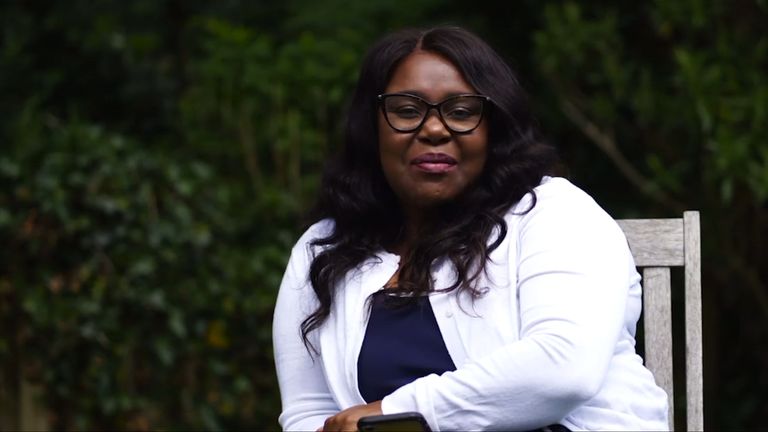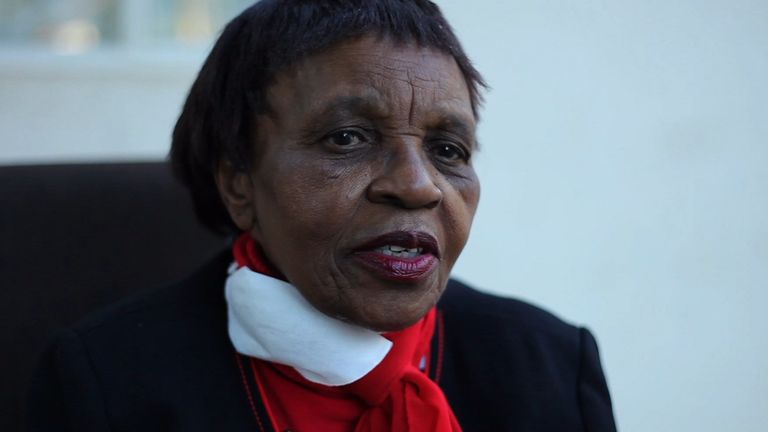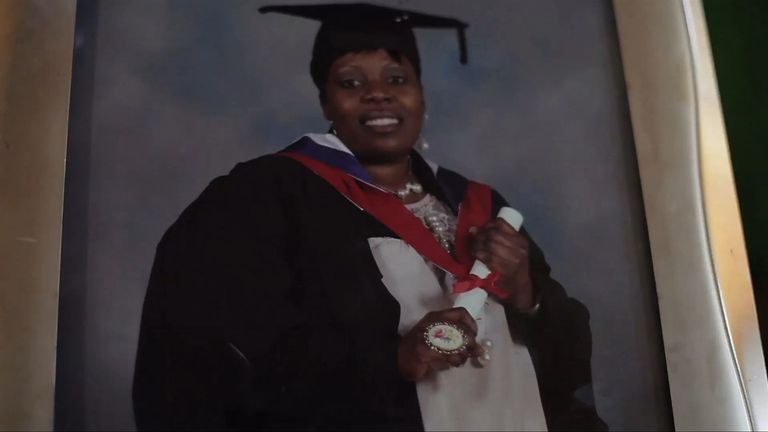The Zimbabwean embassy in London has told Sky News that at least 37 citizens of the southern African country have died in Britain during the coronavirus pandemic.
It is a revelation which underlines the damage COVID-19 has inflicted on immigrant communities in the UK.
Officials said the vast majority of those who died were working in health and social care positions.
Qualified nurses and doctors from Zimbabwe have long been recruited to help relieve staff shortages in the UK, but the total number of Zimbabweans working in the health sector is small.
According to a study published by the House of Lords in January, Zimbabweans made up a tiny percentage (0.3%) of the total workforce of NHS England.
However, the number of deaths recorded by consular officials suggests that Zimbabweans may constitute well over 10% of all frontline workers who have died during the coronavirus crisis.
This startling disclosure suggests that Zimbabweans have proven particularly vulnerable in the UK and there is a team of researchers and medical experts now trying to grapple with the reasons why.
“This is something that we all need to focus on and we need to do it urgently,” says Dr Brighton Chireka, a Zimbabwean GP who runs the Manor Clinic in Folkestone, Kent.
Dr Chireka founded the Zimbabwean Diaspora Health Alliance, an organisation that has been collecting evidence and allegations from thousands of Zimbabweans and other ethnic minority health workers during the epidemic.
The 46-year old physician says he has been disturbed by what he has found.
“There is a perception amongst Zimbabweans and other BAME (Black, Asian and minority ethnic) health workers in Britain that they are treated less favourably than white staff members,” he said.
“They frequently tell us that they are being targeted to work in the COVID wards, particularly those working for private agencies. We have been told that whites are more likely than blacks to be assigned ventilators in case of illness.”
Dr Chireka says there is an urgent need to analyse and quantify these claims and points to a survey by the Royal College of Nursing, which found that BAME staff experience greater PPE shortages.
Less than half (43%) of respondents from a BAME background said they had enough eye and face protection, while 66% of white staff said they felt properly equipped.
There are other UK-based Zimbabweans, such as Rumbizai Bvunzawabaya, who are dealing with this catastrophe in a different way.
Ms Bvunzawabaya hosts a popular chat show on social media and has been exploring the communal trauma from her home studio in Coventry.
“It caused so much anxiety and fear because it seemed like everyone was dying, every single day,” she said. “We are not a big community in the UK, we didn’t really understand what was going on.”
One thing that has struck Ms Bvunzawabaya in her interactions and conversations is the tendency among Zimbabwean nurses to head to work regardless of how they are feeling.
“She said: Some continued working when they weren’t feeling well, because they weren’t sure if they had (the virus) or not – and I think Zimbabweans, we are a nation of very hard workers, it is difficult for us to stop working for fear of what will happen to us.”
Many Zimbabwean health workers are under significant financial pressure, supporting households in the UK and back at home.
Rutendo Mukotsanjera was a Staffordshire-based NHS employee who worked extra shifts so she could send money back to her relatives in Harare.
COVID-19 claimed her life in April.
As well as dealing with her grief her mother, Monica Mukotsanjera, says she simply did not know what to do when the money stopped.
“I am just helpless now,” she said. “Rutendo was so good, she was looking after her children, making sure they were getting education, and here and there she would give me money because I am retired.
“Now all that is shattered.”




